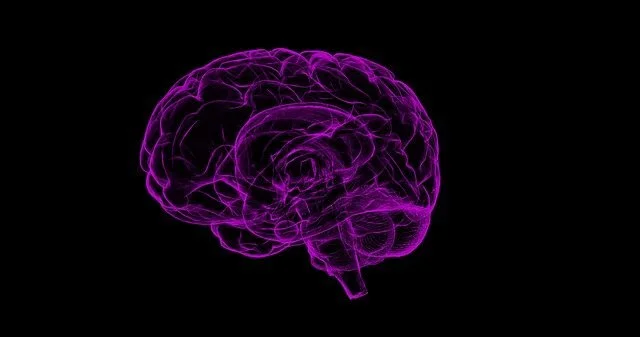Brain Injury
Do You Want To Get Evaluated For A Concussion?
Have you recently sustained a brain injury and you’re not sure how serious it is? Are you worried about it affecting your thinking? Do you want to go back to work, school, or sports, but you don’t know if you’re well enough to return?
Maybe you were told that your symptoms would resolve in a couple weeks, but that hasn’t happened. You’re still dealing with brain fog, pounding headaches, and attention issues. Perhaps you’re having trouble staying balanced—you get dizzy and suffer from motion-sickness. The longer your symptoms persist, the more anxious you may become. Maybe you ask yourself: How concerned should I be? And when can I return to living normally?
If these questions are worrying you, we encourage you to get a brain injury evaluation. Dr. Nicole Murray can provide a thorough assessment of your condition and give you the answers you need.
It’s Normal For The Effects Of A Concussion To Last Longer Than Expected
Concussions are unpredictable. Oftentimes, people are told that their symptoms will resolve after two weeks, but this timetable is unrealistic. While some concussions do resolve quickly, others take longer to heal. This poses a challenge for people trying to return to work, school, or sports. Without a clear estimate of when they’ll get better, it’s no wonder so many people with concussions struggle with anxiety.
Additionally, there are a lot of myths about concussion treatment. Many people think that simply lying in a dark room for as long as you can is the surest way to heal, but this isn’t entirely true. While you shouldn’t be too active with a concussion, it’s good to strike a balance. As long as you’re getting enough rest, doing light exercise and getting out of the house can actually aid in the healing process.
With a concussion evaluation test, you can learn more about what kind of activity is appropriate for your mind and body at this time. We can help you figure out what to expect when you return to normal living and provide any treatment recommendations you need.
A Brain Injury Evaluation Can Help You Assess Your Cognitive Strengths And Challenges
Concussions don’t just affect your thinking; they can also impact your emotional health and cause a lot of anxiety. We understand how frustrating and stressful life with a brain injury can be. Our goal is to give you the most accurate understanding of your injury possible. While we cannot guarantee an exact timetable for healing, we can help you come up with realistic expectations, figure out accommodations, and connect you to the right specialists.
What’s more, we are also a therapeutic practice. If you’re experiencing anxiety, depression, or any other mental health issues related to your concussion, you are welcome to pursue therapy with us. Your counselor can help you deal with the feelings of stress, sadness, and brain fog that accompany your injury.
What To Expect In Your Evaluation
After completing your initial paperwork, we will meet with you for a one-hour interview to discuss your injury and symptoms. From there, we will perform a two to four-hour cognitive evaluation to assess your condition. After that, there will be a one-hour feedback session to talk about your results and develop a game plan for treating your symptoms. The whole process usually lasts about two weeks.
We encourage you to bring family members (or anyone else who lives with you) to your interview or feedback session. Loved ones can offer a different perspective on how your injury affects you from day to day. We also recommend that you bring water and a snack to the evaluation, as it usually lasts a few hours.
You can expect to get your results back about two weeks after your feedback session. In the meantime, we will provide you with a treatment plan for managing your pain and connect you to any doctors you need for vestibular problems. We’ll explore your cognitive strengths and challenges and use that knowledge to inform your recovery.
In Addition To Evaluations, We Also Offer Therapy For Brain Injuries
If you decide to pursue therapy after your brain injury evaluation, we would happy to assist you. Your therapist will help you with cognitive remediation, power-training your brain to get back to where you want it to be. They can give you memory exercises and logic puzzles to aid your brain’s recovery process.
Additionally, your therapist can utilize Cognitive Behavioral Therapy (CBT) with you. The goal of CBT is to help you manage the negative thoughts and intense emotions that you might experience because of your head injury. Concussions can make you irritable and overwhelmed, so it’s important to prioritize your emotional wellbeing after sustaining one.
In the end, understanding your cognitive strengths can help you mitigate your cognitive challenges. And knowing where your cognitive challenges lie can empower you to make appropriate decisions about what steps you need to take next. I’ve been evaluating and treating people with concussions since 2009. I am confident that I can help you get the support you need.
You May Have Some Concerns About Brain Injury Evaluations…
-
A concussion assessment test is technically a medical procedure, so you can usually write it off in your taxes at the end of the year.
-
Most insurance plans cover head injury evaluations, so it’s important to check with your provider beforehand.
-
Thankfully, the entire process is 100-percent confidential. No one else has to know about your results unless you want them to!
You Deserve To Get An Accurate Assessment Of Your Brain Injury
If you have a head injury and you want to know what steps to take next, we encourage you to get an acute concussion evaluation with us. To get started, you can use the contact page, or click here to schedule a phone consultation.





